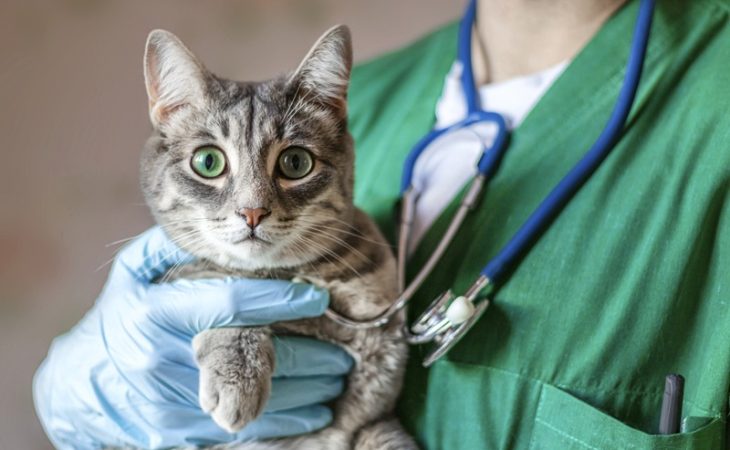When our pets start behaving weirdly, we, the pet owners, get worried about them. We have many questions: Is it something terrible? Or are they just not feeling well today? We often have to take the answers to the vet to find the answers. The vet does different tests to determine what’s wrong with our pets’ health. In this article, we’ll talk about how vital these vet tests are and how they’re a big part of caring for our pets’ health.
The Role of Laboratory Diagnostics in Pet Healthcare
Think of a veterinary diagnostic lab as a detective’s office, where clues to your pet’s health are meticulously analyzed and interpreted. A blood sample, a swab, or a tiny piece of tissue can unfold volumes of information about your pet’s inner workings. Here’s a look at how the lab serves as a nexus for disease detection and wellness:
1. Blood Tests
Blood tests are often the first step in assessing a pet’s health status. They give us a close-up of vital health markers like red and white blood cell counts, liver and kidney function, and electrolyte levels. This information is the bread and butter for diagnosing conditions from anemia to infections.
2. Urinalysis
A peek into your pet’s potty habits via urinalysis can reveal much about their health. It’s a go-to for identifying urinary tract infections, diabetes, and kidney problems, which might otherwise stay hidden.
3. Fecal Examinations
Poop, while not the most glamorous subject, tells a compelling story. Parasites, digestive problems, and certain infections can be diagnosed through fecal exams, helping vets prescribe the proper treatment to get your pet’s tummy back on track.
4. Imaging
While not strictly “lab work,” imaging techniques such as X-rays and ultrasounds complement lab diagnostics by providing a visual perspective of a pet’s internal health that lab tests can often hint at.
Expanding with Advanced Diagnostics
At times, pet health mysteries demand an even more in-depth approach. This is where advanced diagnostics, like endocrinology tests, tissue biopsies, and allergy screenings, join the fray, delving deep into physiology to identify issues that require a specialized touch. These powerful tools offer critical insights for precise diagnoses and tailored treatment plans, putting pets on the path to recovery.
Timely Diagnosis
Time is of the essence when it comes to health, and the lab’s arsenal of tests helps vets catch diseases early—sometimes even before symptoms manifest. Early detection can mean the difference between a simple treatment and a complex medical journey, not to mention the emotional and financial strain it can prevent for pet owners.
How Accuracy Leads to Better Treatment
Diagnosing a pet correctly is like solving a complex puzzle—every piece has to fit perfectly to see the whole picture. The precision of lab diagnostics enables vets to tailor treatments to the specific needs of their patients. Medications, surgeries, and dietary changes all rely on the accuracy of these tests. Reaching an accurate diagnosis ensures effective treatment, minimizes side effects, and promotes quicker recoveries.
When Your Pet Needs a Specialist
Occasionally, a general practice vet will turn to a specialist in veterinary internal medicine for more profound expertise. These pros have a wealth of knowledge in advanced diagnostics and treatment of complex diseases. A specialist can be crucial when a pet faces a severe health challenge that requires a nuanced approach, bolstering the chances of a successful outcome.
The Importance of Regular Checkups
As we go for our routine checkups, scheduling a regular cat checkup for any pet is vital. These visits are golden opportunities for early detection and can serve as a future reference baseline. Regular screenings can spot subtle changes in health that may not be obvious to even the most attentive pet owner.
Lab Diagnostics and Overall Pet Care
The synergistic relationship between lab diagnostics and hands-on vet care creates a comprehensive strategy for pet health and well-being. By understanding what’s happening on both the microscopic and macroscopic levels, vets can provide a full spectrum of care supporting pets through every life stage.
Taking an Active Role in Your Pet’s Health
As pet owners, we play a pivotal role in our pet’s health journey. Staying informed about the value of lab diagnostics, asking questions, and actively participating in our pet’s health care decisions strengthens our partnership with our veterinarians. Together, we can make choices that lead to happier, healthier lives for our beloved animals.
In essence, lab diagnostics in veterinary practice are dynamic, ever-evolving, and crucially important. These scientific tools enable our diligent veterinary professionals to diagnose and treat our pets with unparalleled precision and creativity. Understanding the importance of these processes empowers pet owners to provide the best possible care for their furry family members.
Final Thoughts
We’ve journeyed through the world of vet lab diagnostics, uncovering their indispensable role in pet healthcare. From essential to advanced tests, these procedures help veterinarians make accurate diagnoses, leading to more effective treatments.
Remember, regular checkups and a proactive approach are vital to ensuring the well-being of our cherished pets. With the proper knowledge and the partnership of a skilled vet team, we can rest assured that our animals are receiving the gold standard in healthcare.








